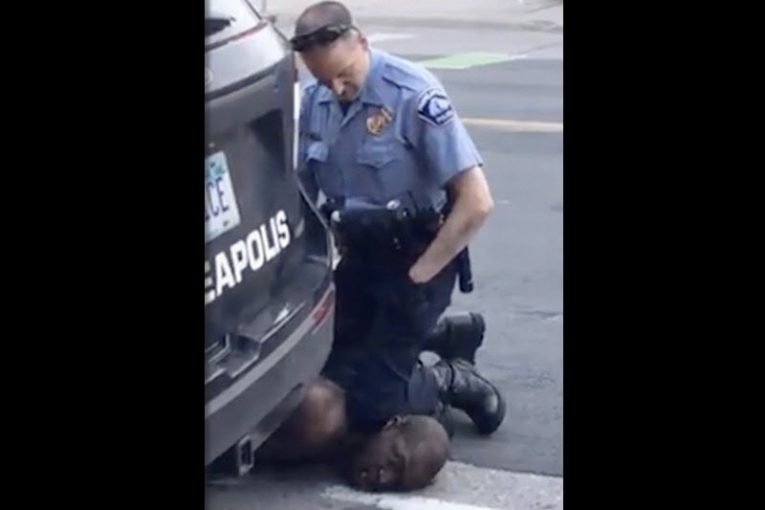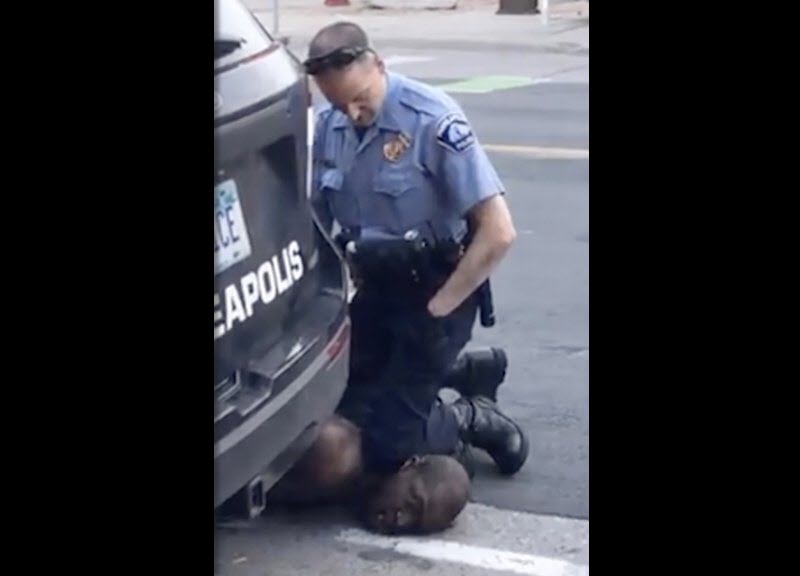

By Samantha Swank
After almost a year of tense anticipation, the trial of Derek Chauvin began last week. The former police officer is facing trial due to the death of George Floyd in his custody. Chauvin held his knee on the neck of George Floyd, an unarmed Black man, for nearly nine and a half minutes according to new estimates, seemingly unaffected by Floyd’s repeated gasps for air and cries that he couldn’t breathe.
“I can’t breathe.” These three words became the slogan of the movement to end police brutality against people of color—especially Black men, who face disproportionately higher rates than other groups of risk of death from police violence.
Chauvin faces charges for third-degree murder, second-degree unintentional murder and second-degree manslaughter. Initially, he was charged with third-degree murder; this charge was later dropped in favor of second-degree unintentional murder but was reinstated last month by an appellate court.
Floyd’s family and their lawyer had hoped for a first-degree murder charge against Chauvin when he was first arrested four days after Floyd’s death. However, a conviction for this charge would require proving that Chauvin had “premeditation and…intent to effect the death of” Floyd or someone else.
Prosecutors hope that if Chauvin is acquitted of second-degree murder, he will still be convicted of third-degree and face punishment.
Minnesota defines second-degree unintentional murder as causing “the death of a human being, without intent to effect the death of any person, while committing or attempting to commit a felony offense other than criminal sexual conduct in the first or second degree with force or violence,” and the maximum sentence is 40 years in prison. In Chauvin’s case, assault is the felony offense.
Rarely do other officers within police departments testify against accused coworkers, a phenomenon termed the “blue wall of silence.” Yet this past week, the court has heard testimony from several other Minneapolis Police Department officers, as well as expert testimony from Los Angeles Sgt. Jody Stiger who stated, “My opinion was that the force was excessive given the low-level offense,” which was attempting to use counterfeit money.
Police Sergeant Ker Yang, who serves as the MPD’s crisis intervention training coordinator, emphasized that the level of force used must be adjusted as circumstances change, such as during a medical emergency where the suspect is not resisting.
Police Lieutenant Johnny Mercil, also from the MPD, said that although it’s acceptable to temporarily place the knee on the neck while handcuffing someone lying flat on their stomach, called the prone position, “We’ve cautioned officers to be mindful of the neck area.” When asked if it would be appropriate for an officer to keep their knee on a handcuffed detainee in the prone position, Mercil stated, “I would say no.”
Lieutenant Mercil also explained that all officers receive training on the appropriate use of force, including that they should use only the minimal force necessary to regain control.
Police Officer Nicole MacKenzie, who serves as the MPD’s medical support coordinator, confirmed that Chauvin had received CPR and first aid training multiple times and that officers are specifically trained to begin CPR immediately if the person being detained has no pulse.
Officer MacKenzie also clarified that the ability to talk is not itself an indication of the ability to breathe. This essentially counters statements made during the restraint by officers such as “You are talking just fine,” implying that if Floyd could talk it meant he could breathe.
Jena Scurry, the 911 dispatcher who answered the call, said that when the officers brought Floyd from the squad car to the ground, “My instincts were telling me that something’s wrong.”
Civilian witnesses and other emergency workers testified as well. Firefighter Genevieve Hansen said, “I identified myself right away because I noticed that he needed medical attention.” When asked why she was unable to provide medical help to Floyd, Hansen stated, “the officers didn’t let me into the scene.” Additionally, she recalled how officers didn’t provide medical aid themselves despite Hansen’s offer “to kind of walk them through it.
Two teenagers who were at the store during Floyd’s arrest testified that “he looked like he was fighting to breathe” and “he looked kinda purple, like he wasn’t getting enough circulation.”
Department policy mandates that officers administer medical aid as soon as possible to detainees, which Chauvin—who held CPR certification at that time—violated by waiting to provide aid even after Floyd went unconscious.
9Wants to Know, the investigative unit for Denver’s Channel 9 News, calculated that within the past 10 years, over a hundred people have died from positional asphyxia after being restrained by police in a similar manner to Floyd.
Since Floyd’s death, law enforcement reforms have occurred in some states. Georgia’s legislature voted last week to repeal the citizen’s arrest statute cited by the three men responsible for Ahmaud Arbery’s death last February. Louisville now prohibits courts from issuing no-knock warrants like the one involved in Breonna Taylor’s Death last March, and Minnesota requires that, if able, officers must intervene when they witness excessive force by a colleague. Oregon’s legislature has unanimously passed several reform bills, including one that requires officers to be trained on the physiology of the airway and another that mandates the creation of a public database naming officers who have committed misconduct.
Recently, House Representative Karen Bass reintroduced the George Floyd Justice in Policing Act that was passed by the House but rejected by the Senate last year. The act would fund community-oriented programs, ban chokeholds, and repeal the qualified immunity precedent that protects government employees—including police officers— from facing trial. President Biden has expressed support for the legislation.
Sam is a Northern California native currently majoring in Spanish and Linguistics at UC Davis. Writing is a lifelong passion, and politics a more recent endeavor that invokes in her an immense fascination. Eventually, she hopes to work in government or other public services.